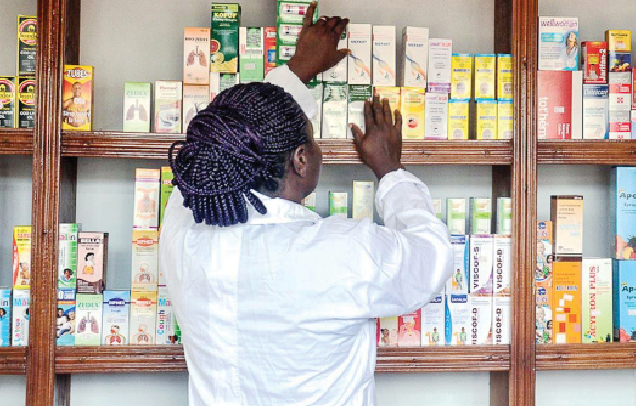Private healthcare providers have threatened to stop treatment of all patients registered under the National Health Insurance Authority (NHIA) scheme, if an urgent review of health insurance premium is not done within the next three months.
This is even as they have called on the federal government to establish a health bank for easy access to “single digit “loans, amid the rapidly increasing high cost of running and maintaining healthcare facilities due to high cost of energy supply and drugs.
Findings by LEADERSHIP Weekend showed that the devaluation of the Naira accounted largely for high cost of production locally as the high exchange rate made procurement of raw materials and equipment imported for production extremely high.
Also, due to difficulty associated with procurement of dollar, cost of the imported drugs has also hit the roof. About the same time, two pharmaceutical multinationals (GSK and Sanofi) exited the Nigerian market amid lingering foreign exchange crisis, leading to the cost of drugs they produce to increase drastically.
According to healthcare providers who spoke to LEADERSHIP Weekend, these challenges have forced a lot of private healthcare providers to shut down.
The president of the Association of the Nigerian Private Medical Practitioners (ANPMP), Dr. Kay A. Adesola, in an exclusive interview with LEADERSHIPWeekend, said most private healthcare owners can no longer cope with the high cost of drugs.
Citing an example, Adesola said, “I used to buy a cup of Septrin for N1,200 in 2012, but right now, it has increased to about N22,000. It is like that across board. The price of everything has increased and we all know it is the truth.”
Worst still, Adesola lamented the recent hike in the price of energy, adding that, “Most hospitals were moved to band A. “We cannot cope with the electricity bill, yet we need light in everything that we are doing,” he added.
On health insurance, ANPMP president averred that the Health Insurance as being implemented today is not sustainable, adding that the private healthcare facilities are presently subsidizing the scheme rather than benefiting from it.
“Many private hospitals can no longer cope. On the other hand, Nigerians who patronize us are impoverish by the economy; they don’t have the money to pay for their healthcare bills. Some have even resort to taking ‘agbo’ which is dangerous to their health. We have been subsidizing the health of the people, but we cannot continue this charity work for ever. Something must be done, for sustainability of business.
“As I am talking to you, the Health Maintenance Organizations (HMOs) are still paying us the same amount of premium that they were paying us since 2012. Premium has not change, yet the prices of drugs have tripled in recent time, some up to 600 per cent,” he lamented.
With these challenges, Adesola threatened that they may likely boycott the NHIA system, if nothing is being done to addressing them, while tasking government to prioritize health. “Government has continue to tell us stories upon stories. It is not good for our sustainability,” he posited.
Adesola however appealed to government to urgent review health insurance premium and establish a health bank for easy access to “single digit “loans to healthcare providers, as it will serve as a catalyst towards a quicker achievement of the rather elusive universal health coverage.
“We call on the government especially the legislative arm, to revisit the law on Compulsory Treatment of Gunshot Injuries/Emergencies with the intention of making it more practicable. We don’t need draconian laws before performing our duties, Government should rather augment the efforts of the Practitioners by ensuring we are paid our dues as enshrined in the law of the country.
“There is the need to jump start the implementation of the law establishing National Emergency Medical Services and Ambulance System (NEMSAS) especially in the area of payment to attending healthcare facilities. The Healthcare Providers will not continue to treat all patients registered under NHIA, if an urgent review of the tariffs is not done within the next three months.
“We call on our dependable and hardworking President and father, Asiwaju Bola Ahmed Tinubu, and all our leaders to prevail on the Nigerian Electricity Regulatory Commission to create a special health sector electricity tariff which will serve as a well-deserved “subsidy to every Health Facility in Nigeria. Energy is life to Health facilities and the current billing will adversely affect the act of HealthCare Delivery if not mitigated against. Representatives of Private Medical Practitioners should be part of policy formulation and implementation in NHIA,” he appealed.
In the same vein, the healthcare providers operating under the aegis of the Association of General & Private Medical Practitioners of Nigeria (AGPMPN) have said that the nation’s health insurance program is a farce, while simultaneously advocating for a comprehensive overhaul of the system.
The healthcare providers are making the call based on their assertion that they are the ones paying majority of Nigerians’ medical care. “We buy expensive drugs to treat patients, yet, we don’t get paid for what we have spent,” they said.
In an interview with LEADERSHIP Weekend, the general secretary of AGPMPN, Dr. Debo Adebiyi, claimed that the HMOs are not being truthful because they are not paying the medical providers’ claims as at when due.
“Even when they pay the claims, they will slash the money, to the loss of the healthcare providers. We have been shortchanged from the beginning,” he explained.
Recall that the NHIA mandates every state in Nigeria and the Federal Capital Territory to establish and implement a State Health Insurance and Contributory Scheme to provide health care for their residents.
Adebiyi averred that the state’s health insurance scheme are worst in terms of payment of claims, adding that, “A state like Lagos state is paying N360 per enrollee per month. What can N360 do for us? The cost of anti-malaria drug is above N700, yet, Lagos state is paying N360 for a month, where a patient can come to access treatment three to four times in a month. If the mother is not sick, the husband or the children are sick. We are running at a loss. We are struggling. There is no way, you expect Nigerians to get quality healthcare services with this amount of money.”
He however called on the management of the NHIA, HMOs and state insurance agencies to face reality. “They know the truth; they know what they need to do. They are only playing politics about it. Let’s start by sitting together to discuss this situation. We need to be well represented at the policy stage,” he added.
In his response to increase of tariff, the managing director, Ultimate Health HMO and a member of the governing council of Nigerian Employers Consultative Association (NECA), Otunba Lekan Ewenla told LEADERSHIP Weekend that the issue of premium is not the responsibility of the HMOs.
“If anything is going to affect the premium positively, it will definitely be due to the increment of salary as it is being acted upon by the NHIA,” Ewenla stated, adding that, “The federal government is the one paying the premium of health insurance for civil servants.” At the moment, the federal government provides premiums equal to 10 per cent of civil servants’ base pay”.
“As for the private scheme, it is equally the increment of the salary of staff of private companies that will determine the increment of premium.”
With the high cost of drugs in Nigeria, Ewenla said the regulator, NHIA, is working on setting up a meeting with healthcare providers to come up with their tariffs based on the cost of medication.
“Recall that all hospitals are not in the same class. For example, those that are located in eye brown location like Ikoyi, Victoria Island and Lekki, cannot be compared with those that are in Mushin.
The regulator is categorizing these hospitals and asking them to come up with their tariffs for the healthcare services they are rendering and if possible, separate the cost of medication from the services they rendered, as the prices of drugs are fluctuating in recent time. This will help us to know the cost of tariffs for drugs.
“We can come up with a concept whereby certain percentage can be added to the tariff as things unfold. It will now be on a quarterly basis. These are the suggestions which are already on the table of the regulator. People like us are already discussing with the regulator. I can assure you that in a very short time, this will be put in place.
“So, in essence, healthcare providers are expected to develop their drug tariff. They should ensure they separate their drug tariff from their operational tariff,” Ewenla stated.





